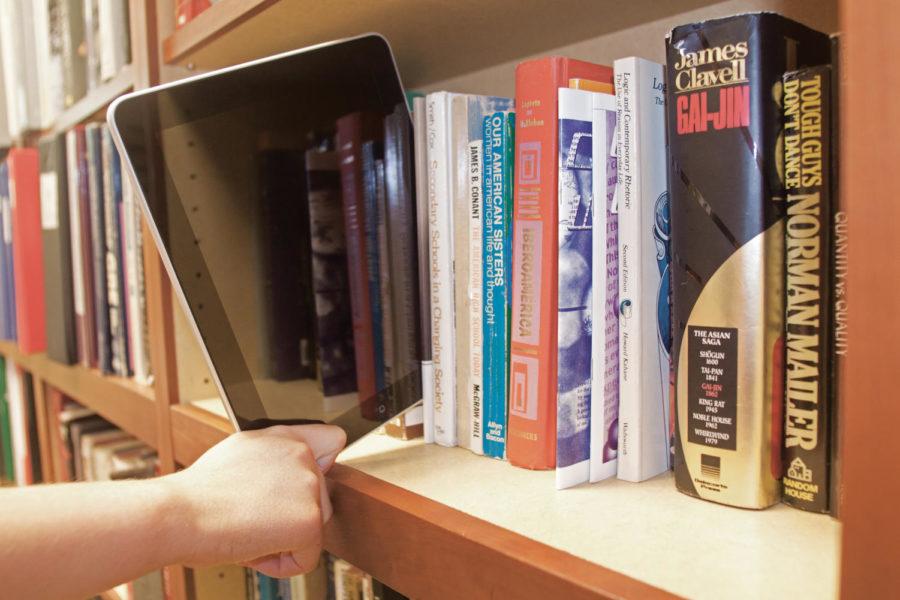Jensen: Make fewer physical textbooks a reality in 2012
Photo: Kelsey Kremer/Iowa State Daily
Opinion – iPad
September 6, 2011
With the tablet market really heating up in the tech world lately, they’ve got to be the future of reader consumption. We know the iPad can play games, create or edit music and movies and surf the Web. And we know Amazon’s Kindle is one of the best e-readers to this date by offering a huge library of books at an affordable cost all with ease-of-use.
Just imagine not having to do price comparison, finding places to rent a book or wait in lines to be later ripped off by the phenomenon of textbook pricing.
I’m not saying the day is coming. I’m saying the day needs to come where we can have the ability to purchase fewer physical textbooks. Instead we would find a textbook and have it saved to our Kindle or iPad. Certainly, math and science books are still ones that would be favored as a physical book and they are usually the most expensive.
But let’s not let that stop those textbook publishers from innovating their teachings and pursuing the tablet functionality by transforming the textbook into an interactive app.
Not an Apple or iPad fan and prefer the taste of Amazon? No worries, because Amazon is currently in the process of making its very own tablet that will run on Android.
Once the actual device is bought and paid for, we certainly hope we will save money in the long run by reading our required textbooks on a tablet device. Textbook suppliers and publishers certainly cannot get away with charging just a slight fraction less than their physical versions. I would say that no more than $50 for any textbook (other than maybe math or science) as a tablet or e-reader version would be suffice.
Recently, I purchased an online version of a book at the cost of $75. That is certainly ridiculous, but it was better than spending almost $200 for the physical version. And I’m sure there are even bigger horror stories out there on our campus. The point is that consumption of text and learning is going to happen more often on a tablet-like device, and in return this should cut down the costs of purchasing our next needed textbooks.
Amazon just reported that this year it actually sold more copies of Kindle-version books. Pleasure reading is certainly fit for consumption on these devices, but will textbooks make it? I hope they do, not only for our bank accounts, but also to have the opportunity to enhance our learning. In this case, I strongly believe technology can enhance the way we learn and interact with the material.
The only problem is that the textbook publishers and even the stores are on this realm of control and power and neither want any change. Just look how long it took for renting textbooks to come to our bookstore after Chegg already had started the concept.
I want there to be less shelf space in the Iowa State University Bookstore for overpriced textbooks. Our money should be spent more toward the quality of learning from the textbooks and less on the textbooks themselves.
Sure, the future for fewer physical textbooks looks dreary, but the advancements in this technology will enhance our ability to learn from the material created.
Textbooks don’t always have to come in the same form. They can be transformed into an interactive app, but only if the publisher sees app development important for its future. If a company doesn’t see the material becoming the interactive type, then I would highly suggest it move away from the physical format.

















